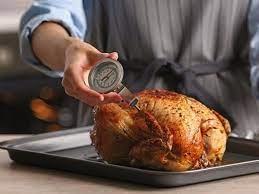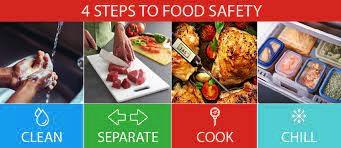A recent study conducted by the USDA over a five-year period confirmed that food handling and preparation practices in homes contribute to foodborne infection. Although 87 percent of participants self-reported that they wash their hands before starting to cook, only 44 percent were observed to actively wash before preparing meals. This deficiency was especially observed when raw meat and raw vegetables were handled. Evaluation of hand-washing practices showed that 96 percent were deficient. Although half of consumers observed in a test kitchen used a thermometer to check the temperature of sausage patties during cooking, half of those participating in the study did not check all the patties, necessary to ensure destruction of potential pathogens in a meal.
This deficiency was especially observed when raw meat and raw vegetables were handled. Evaluation of hand-washing practices showed that 96 percent were deficient. Although half of consumers observed in a test kitchen used a thermometer to check the temperature of sausage patties during cooking, half of those participating in the study did not check all the patties, necessary to ensure destruction of potential pathogens in a meal.
Approved kitchen practices include separation of raw and cooked foods, refrigeration of high-risk foods, decontamination of utensils and work surfaces and thorough cooking of meat and eggs are essential practices to limit transmission of foodborne infection.
Production practices and procedures in packing and processing plants have reduced levels of potential foodborne pathogens. Absent a positive kill step such as irradiation or thermal pasteurization that is either disallowed, inappropriate, impractical or unacceptable to  consumers, operators of institutional and commercial kitchens and household cooks must improve the storage, handling, preparation and cooking of food items.
consumers, operators of institutional and commercial kitchens and household cooks must improve the storage, handling, preparation and cooking of food items.
The higher prevalence of foodborne infection among the 18-to-28-year age group referred to as the “second weaning” is attributed to inadequate training in food preparation. This demographic values time over safety and relies heavily on microwave heating of potentially contaminated foods.